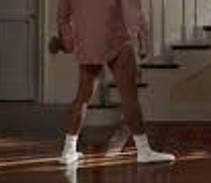
Consider yourself warned. Talking to a writer is risky business.
We should come with a hazard sticker; “Be Advised! Anything you say may be used in my work.”
Simply put, there are only three sources for what a writer puts down on paper. First is imagination, which, frankly, is more productive for some individuals that others. Second is what can be gleaned from reading or watching TV and films. That’s quite a rich vein to tap, but always flirts with imitating the work of others. How many times have the hero’s journey, Romeo and Juliet, or The Seven Samurai been retold? Sometimes the retelling is worth a read or a viewing. Sometimes not. The third source is what is heard from others. And that is the subject of this piece.
If you are acquainted with a writer, you should keep in mind that your words are lodging in his or her subconscious mind. Where they will lie in wait, lurking until a suitable target of opportunity innocently blunders by. When you speak with a writer, there’s a good chance your conversation will be scribbled down, and stripped for parts.
Want an example? One day, actor and song writer Paul Williams was speaking with his mother. She mumbled something he didn’t quite catch. Paul asked her to repeat it. She replied, “Oh, nothing. Just talking to myself, and feeling old.” That phrase later provided the opening line to the Carpenters’ hit “Rainy Days and Mondays.” (https://www.youtube.com/watch?v=OLdWuRTEEo8&t=1012s, at 6:23 in the video)
I am not the first to notice this phenomenon. And you really don’t even have to be speaking to the writer for your utterances to be harvested. There’s a website (https://overheardinnewyork.com/), and at least one entire anthology devoted to the subject. (https://www.amazon.com/Coffee-Cup-Tales-overheard-conversations/dp/1495307980) The person busily typing away next to you at a coffee shop might have an ear crooked to your words.
I, myself, am guilty of this sin. The following snatches found their way into my head, and occasionally billow up while I’m writing dialog.
“You have to dump him. He’s just emotionally damaged.”
“I backed into his car this morning, but it wasn’t my fault. He parked so crooked in the driveway. He was sort of asking for it.”
“Did anybody see you do that? … Good. First, shred all of the paperwork…”
You don’t have to be a writer to start spinning stories around fragments like that. The difference is that a writer might fashion a tale from them, adding dramatic embellishments in the process. In fact, they probably will.
